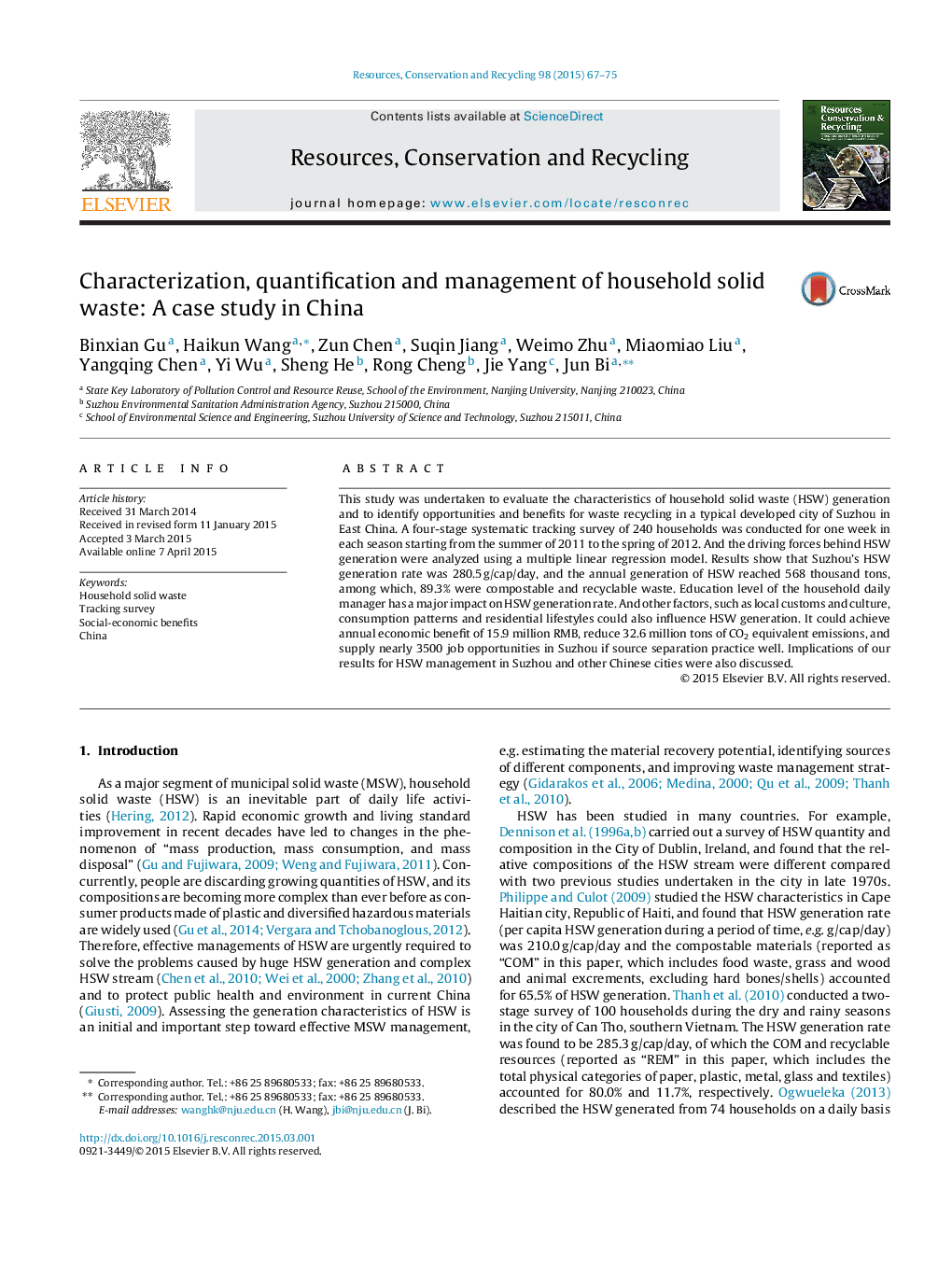| Article ID | Journal | Published Year | Pages | File Type |
|---|---|---|---|---|
| 1062930 | Resources, Conservation and Recycling | 2015 | 9 Pages |
•Urban field-tracking survey of household solid waste (HSW) was implemented.•Urban HSW generation characteristics were quantified in several dimensions.•Social-economic benefits of HSW source separation were quantified.
This study was undertaken to evaluate the characteristics of household solid waste (HSW) generation and to identify opportunities and benefits for waste recycling in a typical developed city of Suzhou in East China. A four-stage systematic tracking survey of 240 households was conducted for one week in each season starting from the summer of 2011 to the spring of 2012. And the driving forces behind HSW generation were analyzed using a multiple linear regression model. Results show that Suzhou's HSW generation rate was 280.5 g/cap/day, and the annual generation of HSW reached 568 thousand tons, among which, 89.3% were compostable and recyclable waste. Education level of the household daily manager has a major impact on HSW generation rate. And other factors, such as local customs and culture, consumption patterns and residential lifestyles could also influence HSW generation. It could achieve annual economic benefit of 15.9 million RMB, reduce 32.6 million tons of CO2 equivalent emissions, and supply nearly 3500 job opportunities in Suzhou if source separation practice well. Implications of our results for HSW management in Suzhou and other Chinese cities were also discussed.
